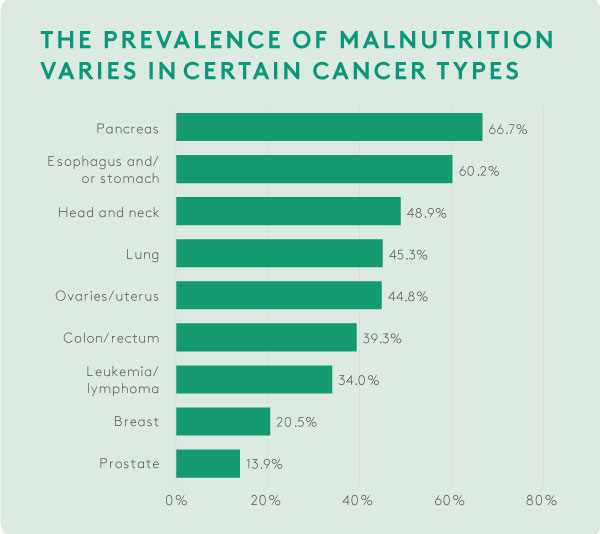1. Global Cancer Observatory. Accessed March 2023, https://gco.iarc.fr/
2. Hébuterne X, et al. J Parenter Enteral Nutr. 2014;38:196–204.
3. Ryan AM et al. Proc Nutr Soc. 2016;75:199–211.
4. Caccialanza R et al. Ther Adv Med Oncol. 2020;12:1758835919899852.
5. Silva FRdM, et al. Nutr J. 2015;14:1–8.
6. Xue H et al. J Parenter Enteral Nutr. 2011;35:74–90.
7. Muscaritoli M et al. Clin Nutr. 2021;40:2898–2913.
8. Faber J et al. J Cachexia Sarcopenia Muscle. 2015;6:32–44.
9. Arends J et al. Clin Nutr. 2017;36:1187–1196.
10. Elia M et al. Clin Nutr. 2016;35:125–137.
11. Paccagnella A et al. Support Care Cancer. 2010;18:837–845.
12. Manasek V et al. Klin Onkol. 2016;29:351–357.
13. Mudarra GN et al. Nutr Cancer. 2020;72:801–807.
14. Boulahssass R et al. Cancers. 2019;11:192.
15. an Vugt JL et al. Ann Surg Oncol. 2015;22:3625–3631.
16. Adiamah A et al. Ann Surg. 2019;270:247–256.




